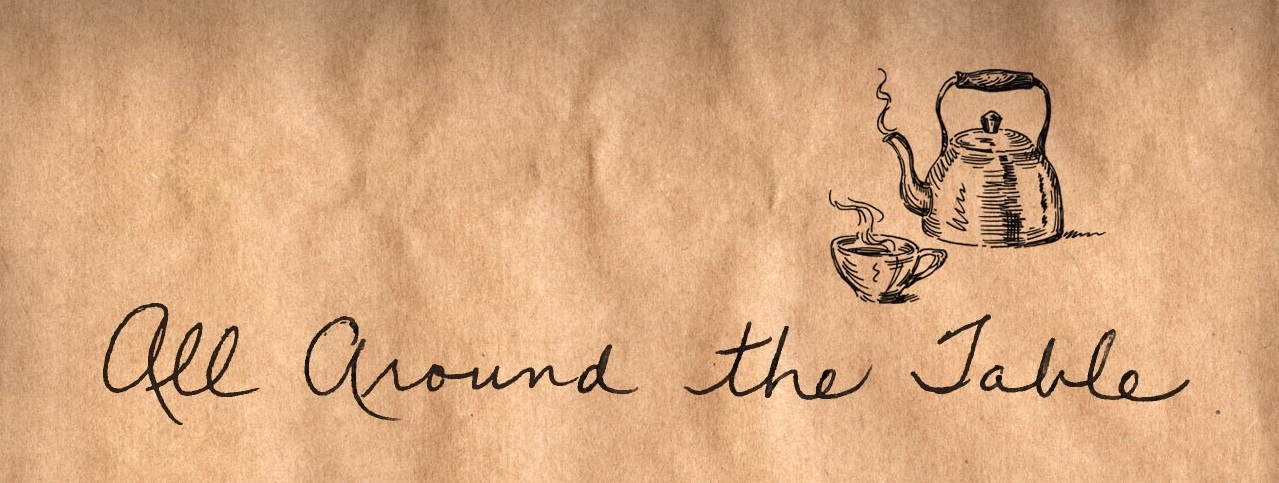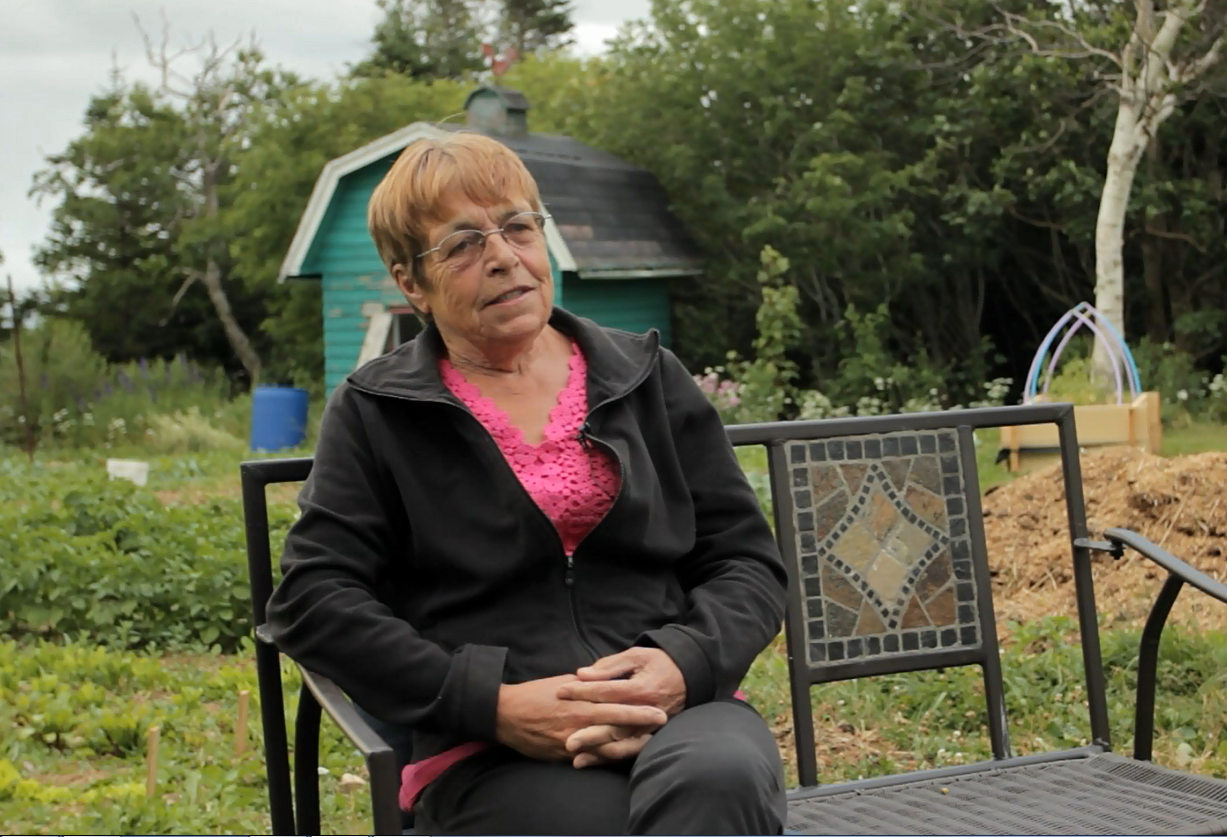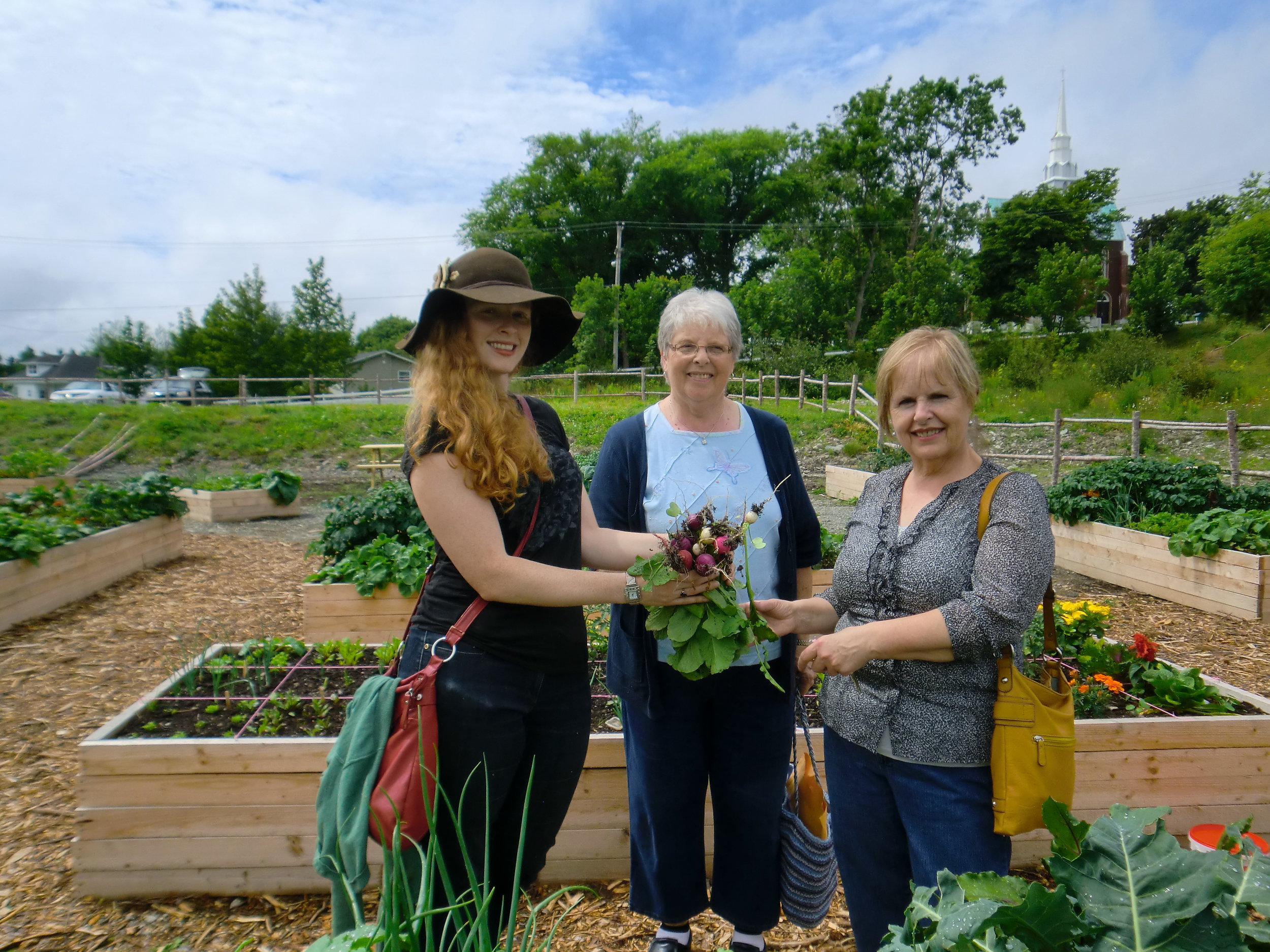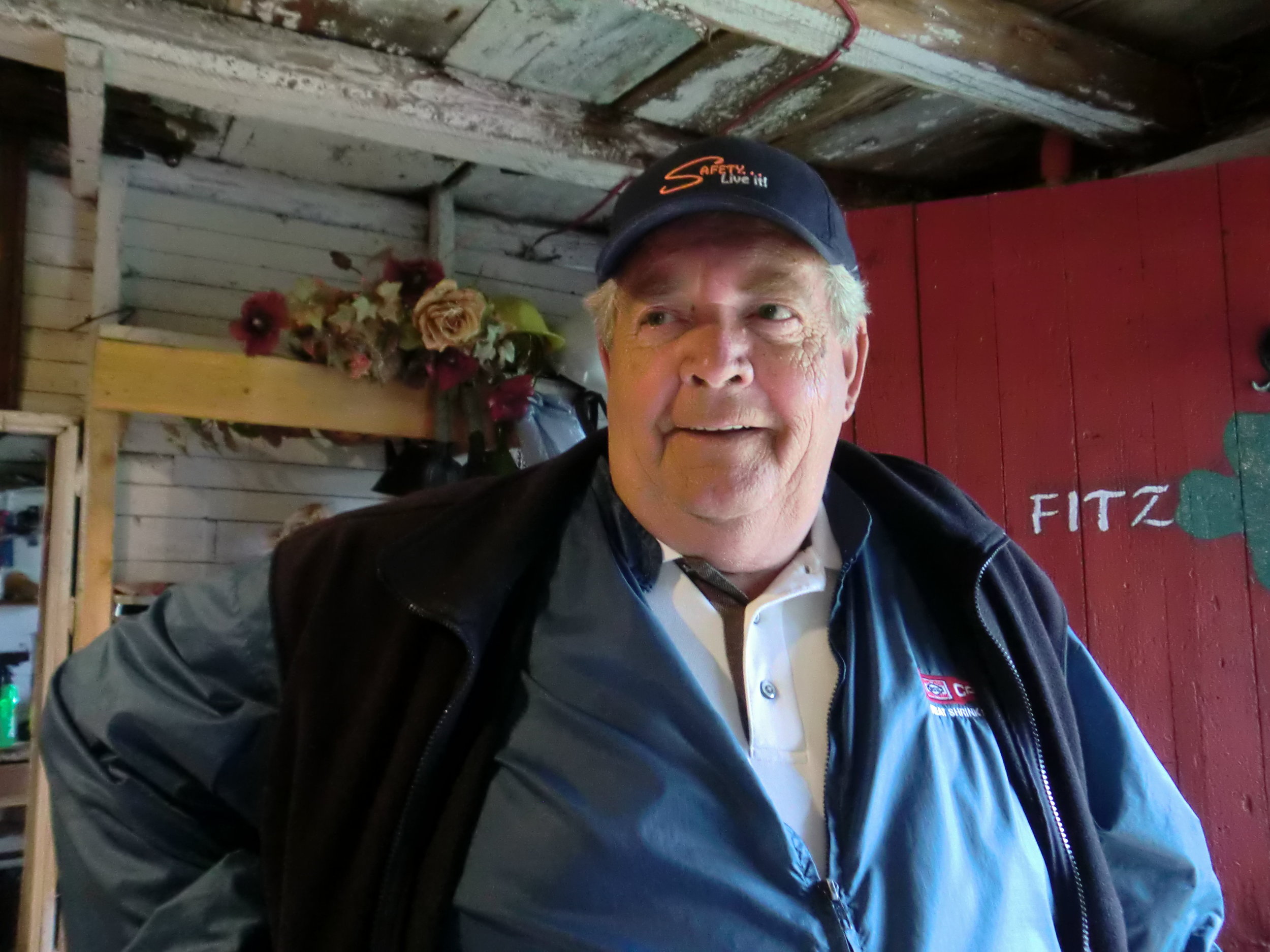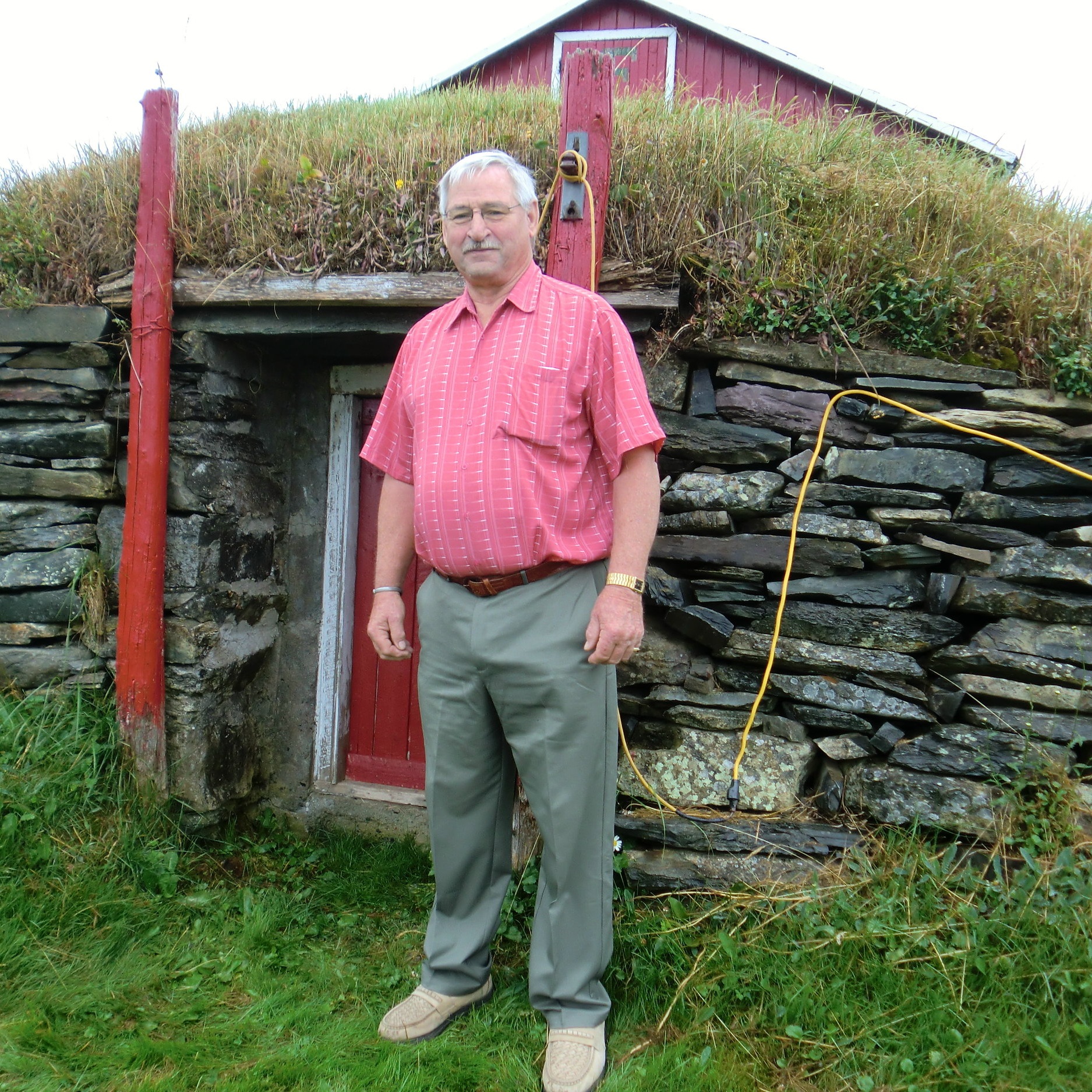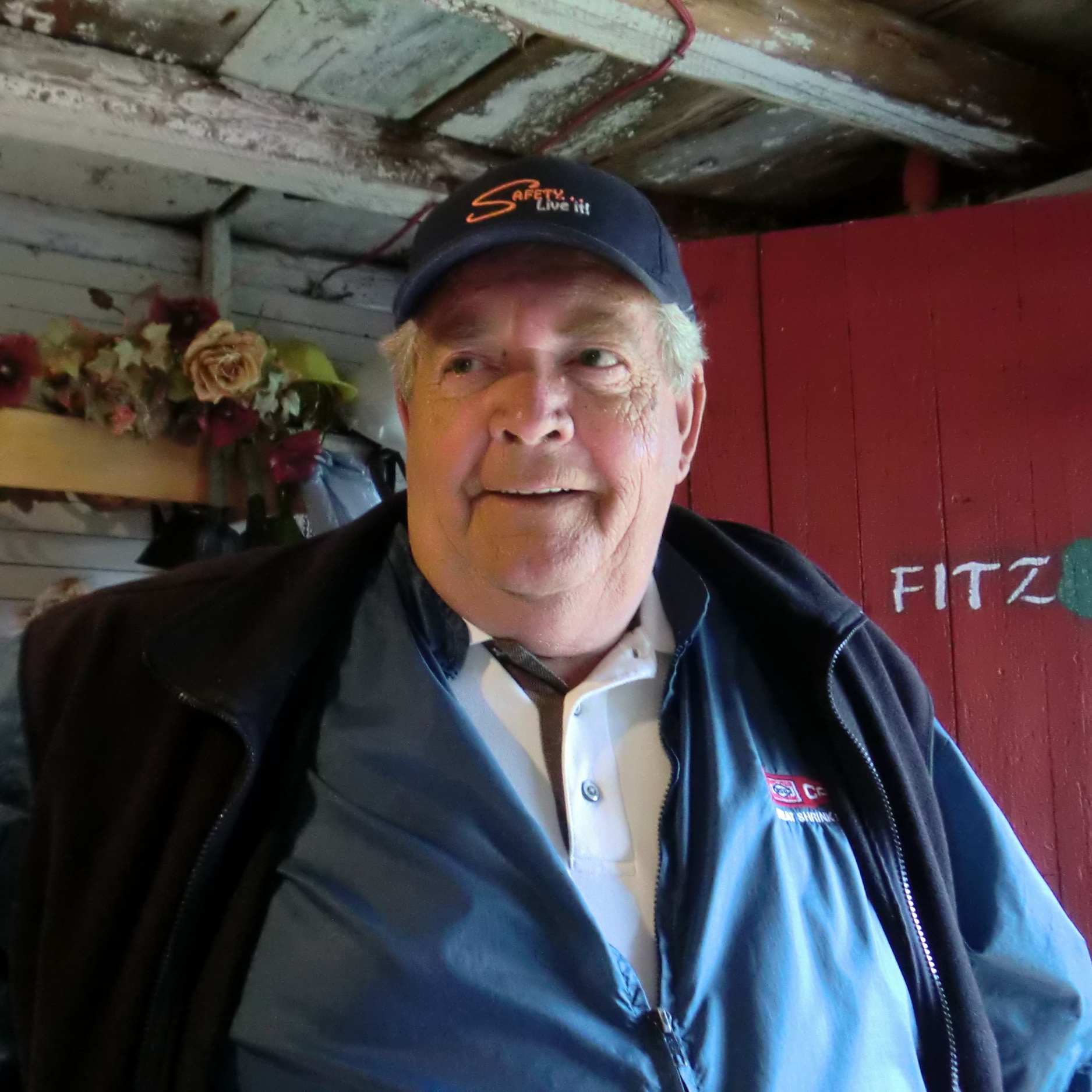All Around the Table
As a collection, these interviews shed light on how the way forward towards a better food system begins by looking backward. For inspiration from our past, and folks like the ones profiled in this video series.
A vegetable garden, laying hens, a fishing boat, berry grounds: when our grandparents were younger, the grocery store was out the back door, in the forms of hens, cows, gardens, and more.
Since then, however, Newfoundland and Labrador has become increasingly dependent upon an uncertain global food system, disruptions to which are being felt more frequently on the tables of families here, leading communities to seek more sustainable and healthy local alternatives.
In our search, we can look to the traditional ways of growing, preserving, and preparing our food that still make sense today. These traditions live on in the knowledge of older generations; wisdom that has been captured in these 12 interviews with seniors from Eastern Newfoundland, who share their personal food stories.
Lewis Cole
“The garden was our most important possession that we had … and we made sure we had enough for the winter, because you couldn’t just run out to the store and buy it.”
Jim Fitzpatrick
Basically, the only things we needed was flour, sugar, and tea. Pretty well everything else we’d grow here ourselves: pork, meat, eggs, milk, butter, [staple vegetables] ... lots of bacon!,” he says laughing. “And the cellar was our refrigerator.”
Frances Saunders
“Store-bought and fast foods were practically unheard of. We had planned meals, households had their menu of the week. Sunday was cooked dinner, Monday then was leftovers, Tuesday was pot day, Wednesday fish day …”
Merv Tilley
“If you grow your own food yourself it’s rewarding, and you’ll know it’s not full of poison. Take an armload of rhubarb leaves, throw them in a barrel and burn them, steep them out for 20 minutes, and there’s your pesticide.”
mary Lee
“We had our own eggs, because we had our own hens; we had our own milk, because we had our own cows. My father was a fisherman, so we had our fish he’d catch preserve.”
Bride Martin
We’d all bundle into the dory and go across the pond with a flour bag [because] partridgeberries save well. Bottle them, put them in the cellar, and they’d be good for years. We didn’t have to buy it. All you wanted was a bit of energy to go get it.
Bride Power
I learned to cook very early, just by watching, that’s the truth, that’s the way it was, just by watching your grandmother … sometimes Mom would have something written down, but my grandmother had it all in her head. It tasted good, too!”
Wilbert Dawe
“We had gooseberry trees, to pick the berries off and make jam. You could live right off the land. Summer time, we had a little dory, and you’d go out fishing so you’d have your fish. There was no [limit] on what you could have then.”
Leonard Ruby
“The customers we had [at our farm stand] followed through every year. The sky was the limit, you could grow as much and sell as because there was a market for it.”
Leo Walsh
“We had cows, pigs, sheep … and any time we killed an animal, we saved the blood, and we’d make blood puddings. We’d have them pretty well through the winter … we’d do rabbit hunting, partridge. Everyone would help everyone out.”
Edward “Ned’ Yetman
“Kelp was good for the gardens. We didn’t have any fertilizer of any kind back then. Twas kelp and manure. We used to go up in the dory and cut it off the rocks … or if there’s a storm in the winter, the sea takes it in [for you].”
Mary Hanlon
“We had geese for their eggs, and hens for eggs. We used to put the eggs in the big barrel of salt. Say Easter Sunday you had eggs for breakfast, you’d go and you’d pick out the eggs with your hands, with the salt and all.”
these partner organizations, their volunteers and staff, were vital to this project:
Carbonear Parks and Recreation Commission
Donna Nolan, Regional Nutritionist with Eastern Health
Father Val Power Learning Centre, Riverhead, St. Mary’s Bay
Mary Ennis, Seniors Resource Centre
Mercy Centre for Ecology and Justice, St. John’s
St. Patrick’s Organic Community Garden, Carbonear
Town of Carbonear
Turk’s Gut Heritage House, Marysvale
Food First NL also thanks the artists and creative businesses that contributed to these videos:
Dan Ficken: Original Music (danficken.ca)
Heavy Weather: Film Production (heavyweather.ca)
Perfect Day: Design (perfectdaycanada.com)
Funding for All Around the Table was provided by Government of Canada- New Horizons for Seniors Program


